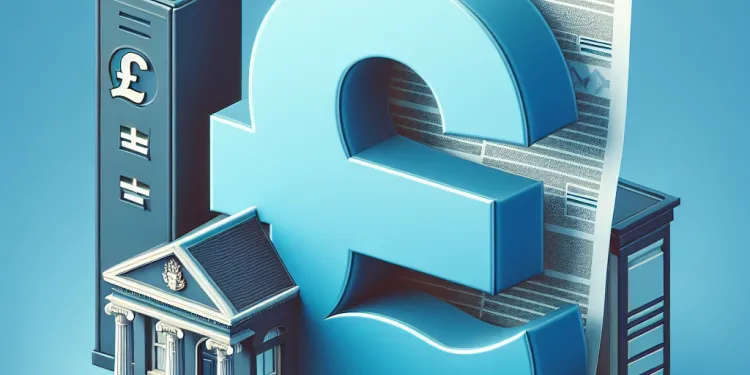
Find Help
More Items From Ergsy search
-

Do online banks have lower fees than traditional banks?
Relevance: 100%
-

Do all banks have the same fee structures?
Relevance: 98%
-
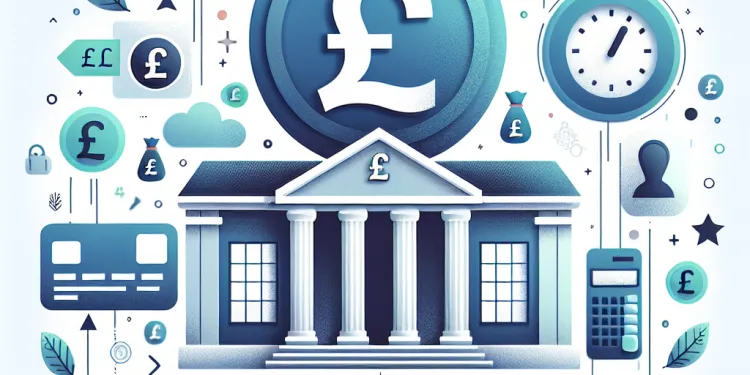
How do banking fees impact financial inclusion?
Relevance: 97%
-
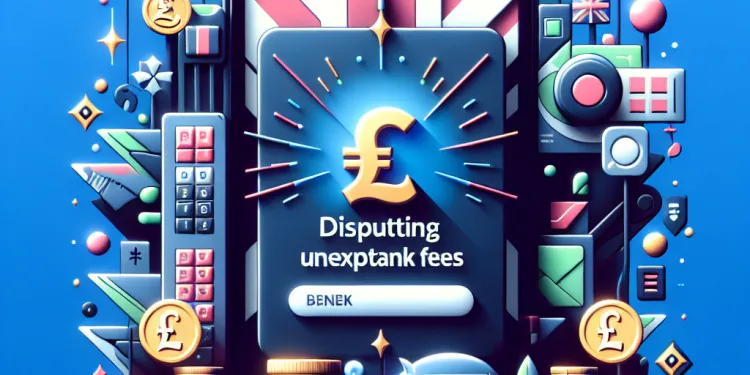
Can customers dispute unexpected banking fees?
Relevance: 97%
-
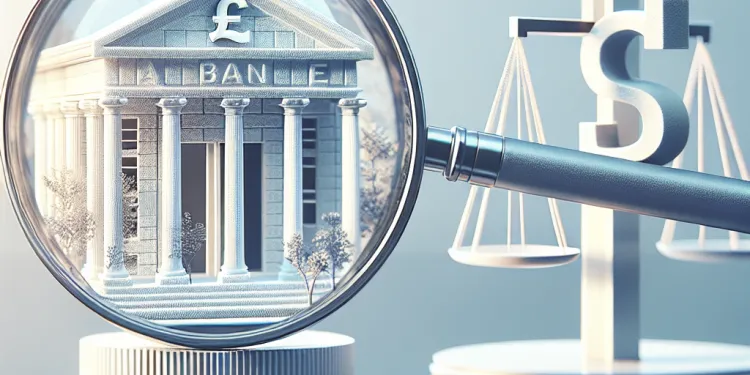
Why is there a call for greater transparency in banking fees?
Relevance: 97%
-
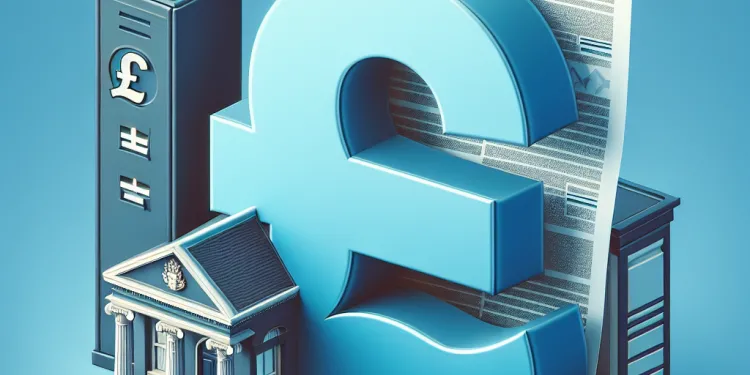
Why are some banking fees unexpectedly high?
Relevance: 96%
-

What initiatives are in place to address banking fee transparency?
Relevance: 94%
-
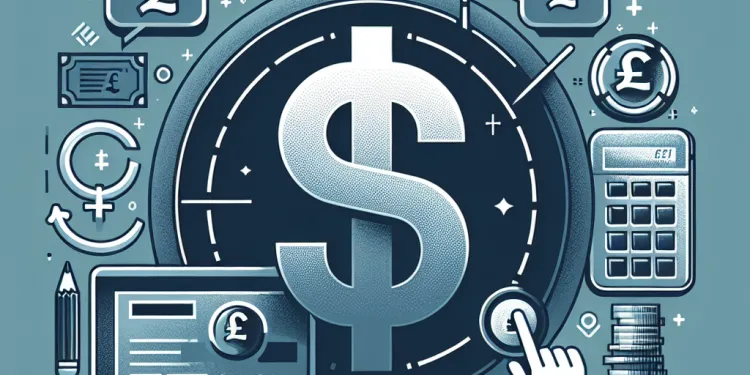
How can banks improve transparency regarding their fees?
Relevance: 93%
-

Calls for Greater Transparency in Banking Fees as Complaints Rise
Relevance: 93%
-
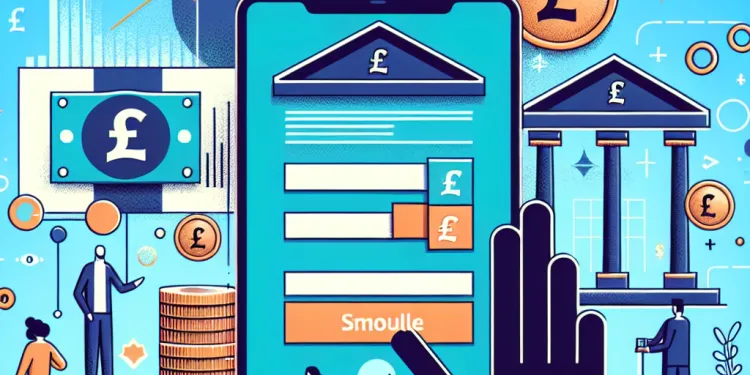
What feedback do customers give regarding banking fees?
Relevance: 91%
-
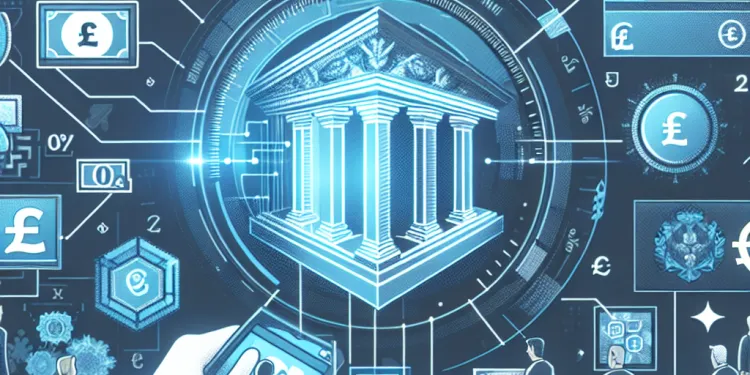
How does technology help in enhancing transparency in banking fees?
Relevance: 91%
-

What fees should I avoid when choosing a new bank?
Relevance: 91%
-
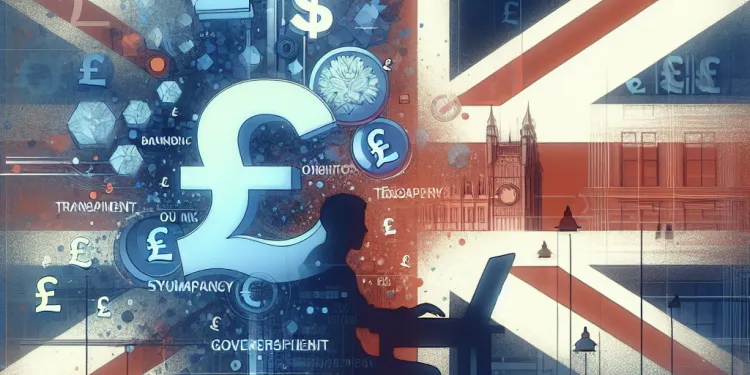
How can government policies influence transparency in banking fees?
Relevance: 90%
-

Are there specific banking services more prone to opaque fee structures?
Relevance: 90%
-
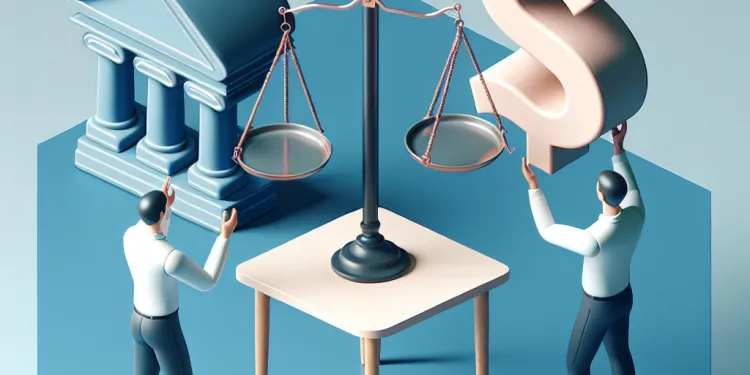
How can disputes over banking fees be resolved effectively?
Relevance: 90%
-
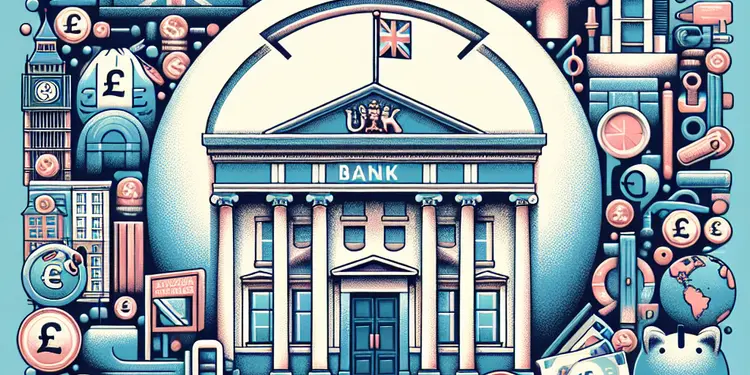
What fees should I avoid when choosing a new bank?
Relevance: 90%
-

What are some examples of hidden fees in banking?
Relevance: 90%
-

How can consumers protect themselves from hidden banking fees?
Relevance: 88%
-
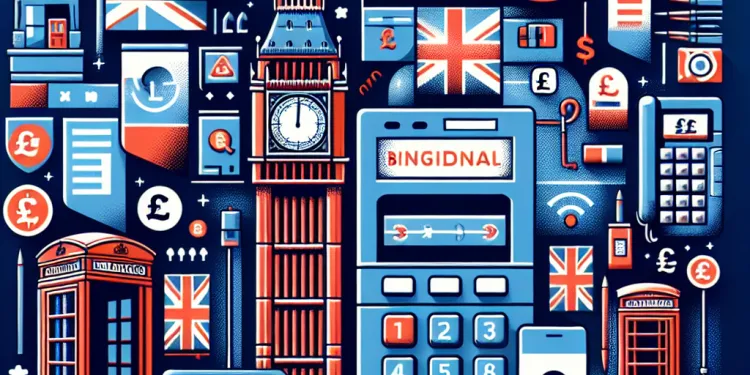
What actions are consumer rights groups taking regarding banking fee transparency?
Relevance: 85%
-
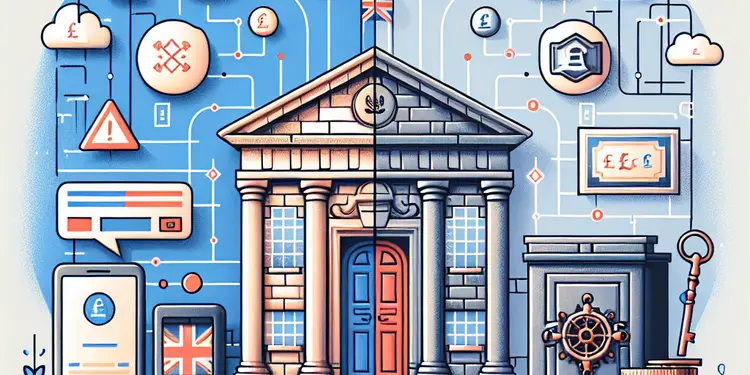
Are online banks cheaper than traditional banks?
Relevance: 76%
-
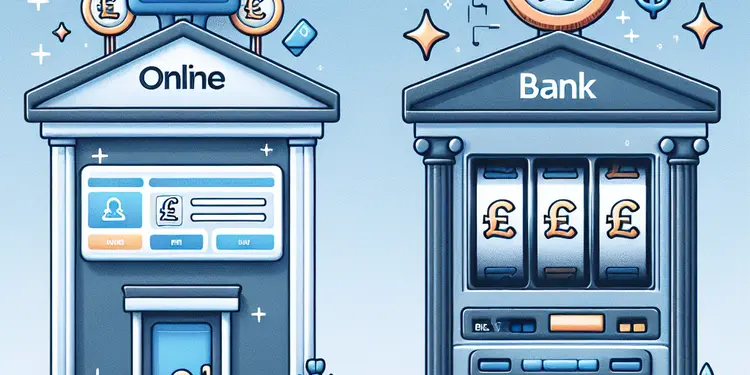
Are online banks cheaper than traditional banks?
Relevance: 75%
-
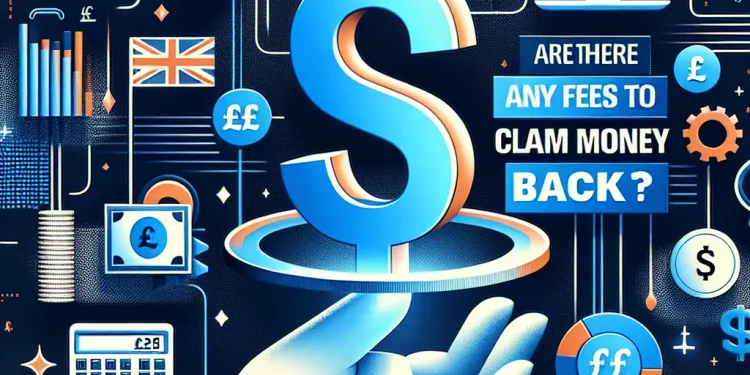
Are there any fees to claim money back?
Relevance: 71%
-

Can I save money by switching my bank?
Relevance: 69%
-
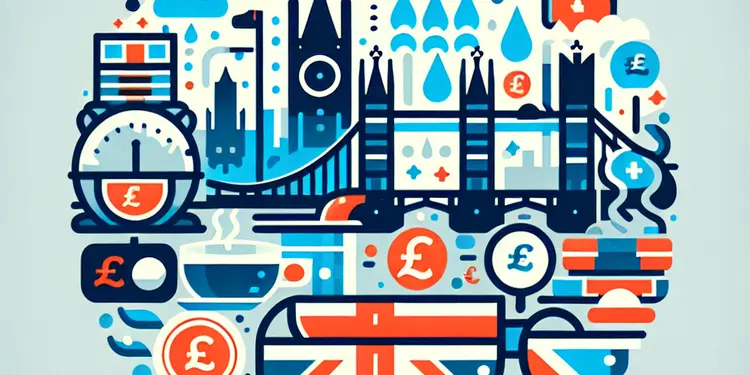
Are there any hidden fees I should be aware of?
Relevance: 69%
-

Are there any hidden fees with Monzo or Revolut?
Relevance: 69%
-
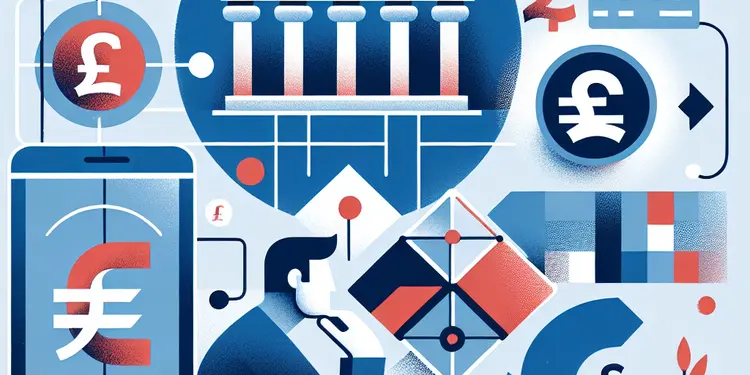
Can I save money by switching my bank?
Relevance: 68%
-
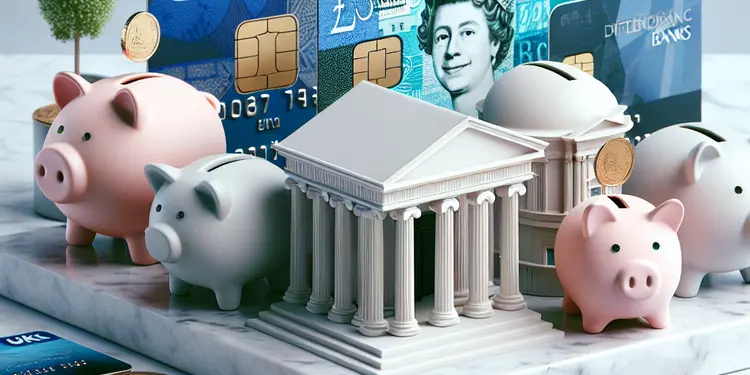
Are there benefits to having multiple bank accounts at different banks?
Relevance: 68%
-
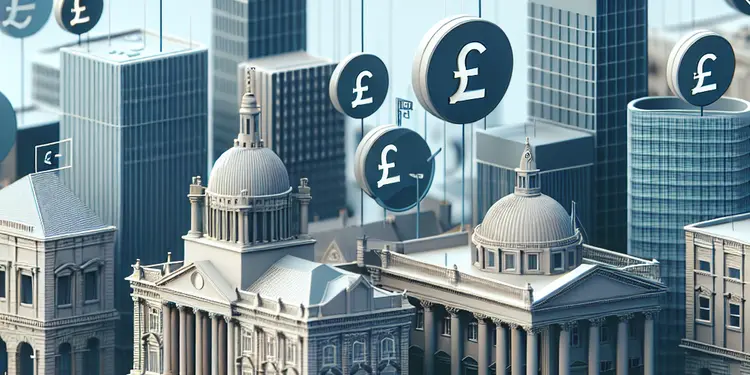
Are there benefits to having multiple bank accounts at different banks?
Relevance: 68%
-

Can I save money by switching my bank?
Relevance: 66%
-
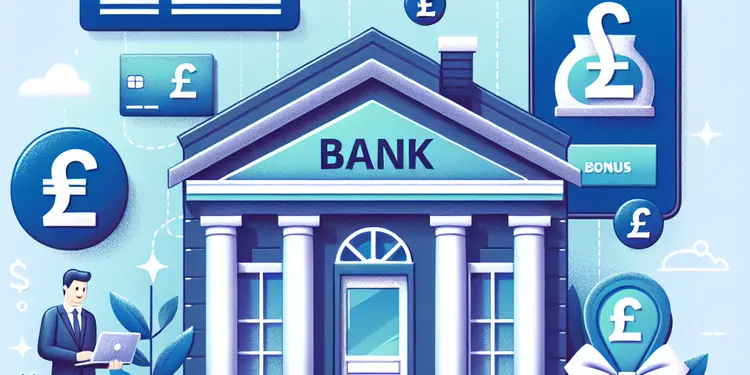
Is it worth switching banks for a sign-up bonus?
Relevance: 65%
-

How can I compare banks to find the best deal?
Relevance: 64%
-
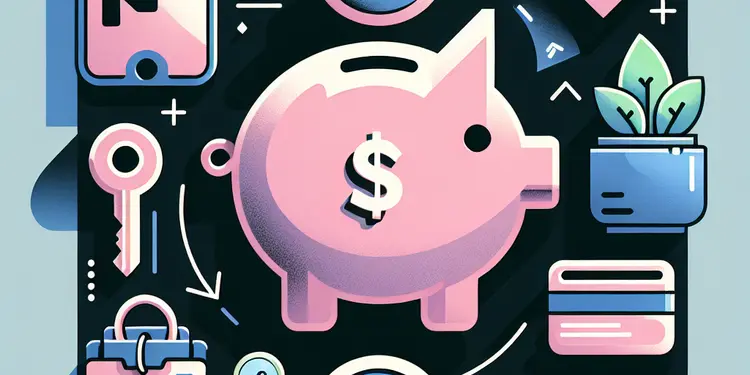
What should I consider when switching banks to save money?
Relevance: 64%
-

Can switching banks help me budget better?
Relevance: 63%
-
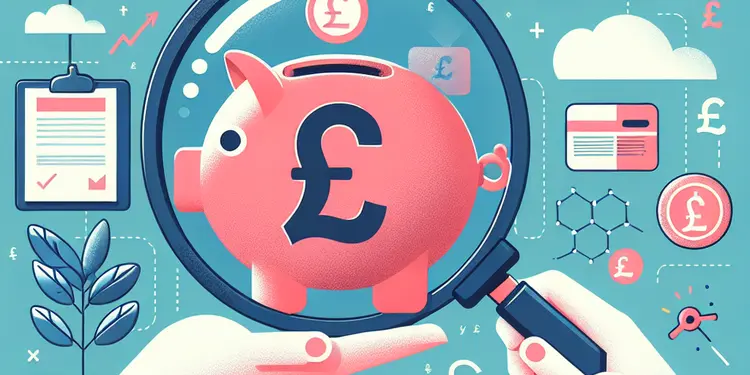
How can I compare banks to find the best deal?
Relevance: 63%
-

Can switching banks help me budget better?
Relevance: 63%
-
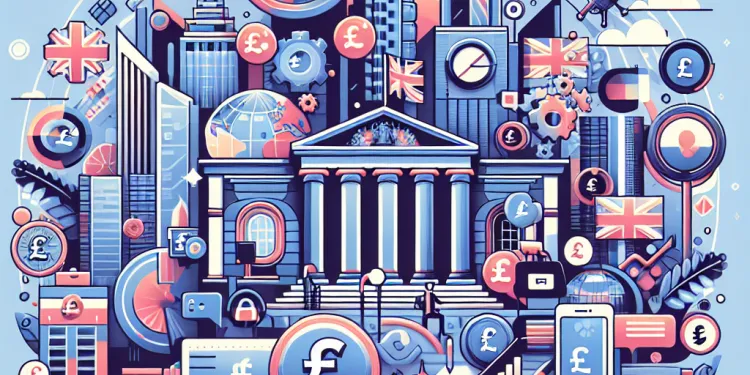
Can I use Monzo or Revolut for everyday banking?
Relevance: 63%
-
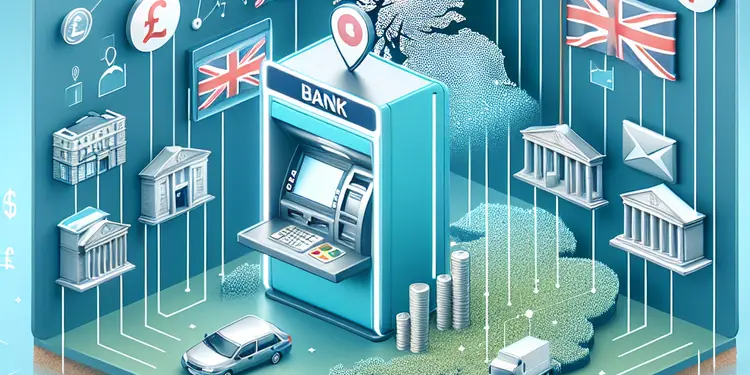
How important is it to consider the bank's ATM network when switching?
Relevance: 63%
-
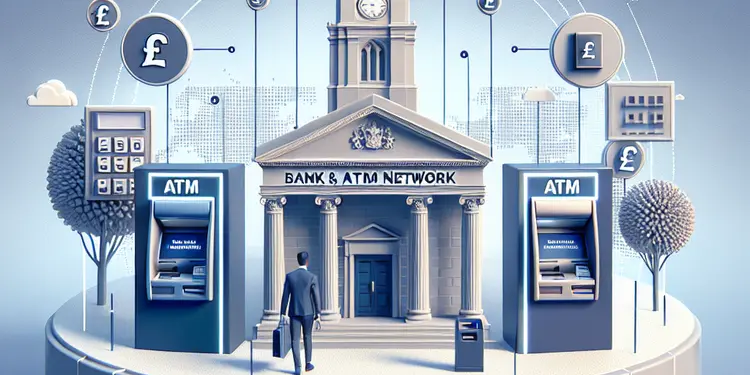
How important is it to consider the bank's ATM network when switching?
Relevance: 62%
-

What should I consider when switching banks to save money?
Relevance: 62%
-
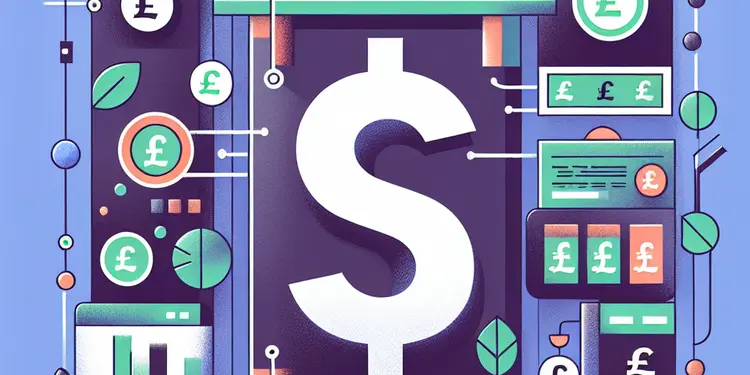
What are some common mistakes to avoid when switching banks?
Relevance: 62%
Introduction
In the UK, many banking customers express their frustration over unexpected high banking fees. While some fees are understandable, others appear disproportionately high or opaque. This can lead to dissatisfaction and confusion. Understanding why some banking fees are unexpectedly high can help consumers make better financial decisions and possibly avoid such charges.
Operational Costs
Banks incur various operational costs in maintaining their infrastructure, payrolling staff, implementing security measures, and complying with regulatory requirements. These costs can sometimes be substantial, especially with the need to continually upgrade technology to prevent fraud and cyber threats. To compensate, banks may impose higher fees on certain services, such as overdrafts or wire transfers, that require more administrative effort or carry higher risk profiles.
Profit Maximisation
As profit-oriented institutions, banks aim to maximise their earnings. Some fees are strategically set high to increase revenue from certain services. For instance, fees for bounced cheques, foreign currency transactions, or unauthorised overdrafts may be set high to dissuade such occurrences or to incentivise specific customer behaviours, such as maintaining higher balances. Ultimately, some fees help banks exert financial pressure or encourage spending behaviours that align with their profitability goals.
Lack of Competition and Alternatives
In some sections of the banking industry, there is limited competition, which can contribute to higher fees. If few banks offer similar products or services, customers may find it challenging to switch to more favourable fee structures. Moreover, the complexities involved in dismantling and re-establishing banking relationships can deter customers from seeking better alternatives, allowing banks to maintain high fees.
Lack of Consumer Awareness
Another factor contributing to high fees is the lack of consumer awareness or misunderstanding of fee structures. Banks often provide complex and lengthy terms and conditions that consumers might not thoroughly read or comprehend. As a result, customers may inadvertently incur high charges, especially on infrequently used services like international transactions or specific account benefits. Due diligence in understanding the fee structures and services associated with one's account is essential.
Conclusion
High banking fees often result from a combination of operational necessities, profit motives, market structures, and consumer awareness. By understanding these factors, consumers can better navigate the financial landscape, potentially avoid unexpected charges, and make informed choices about their banking relationships. Awareness and active financial management can be valuable in managing and mitigating unexpectedly high banking fees.
Introduction
In the UK, many people are upset about surprise charges from banks. Some fees make sense, but others seem too high or unfair. This can be confusing and disappointing. Knowing why some bank fees are so high can help us make better choices and avoid extra costs.
Costs of Running a Bank
Banks have to spend money to run smoothly. They pay for things like buildings, workers, and security. They also have to follow rules. All of this can cost a lot, especially when they update technology to stop theft or fraud. To cover these costs, banks might charge more for certain things, like overdrafts or sending money overseas, because these are harder to manage.
Making Money
Banks want to make money. They may set high fees to earn more from some services. For example, they might charge a lot for bounced cheques, using money from another country, or spending too much without permission. These fees can make people change how they use their money, like keeping more in their account. This helps banks make more money.
Few Choices
Sometimes, there aren't many banks offering the same services. This means it's hard to switch to a bank with better fees. Changing banks can be complicated, so people often stay where they are. This lets banks keep their fees high.
Understanding Fees
Some people don't know a lot about bank fees or find them hard to understand. Banks often use long and complicated terms in their paperwork, which people might not read. Because of this, people might get surprise charges, especially for things they don't use often, like sending money abroad. It's important to learn about the fees and services that come with your account.
Conclusion
High bank fees can come from running costs, wanting to earn more, having few banking options, and not knowing much about fees. If we understand why fees are high, we can make better decisions about our money. Knowing more and keeping track of our money can help us avoid surprise charges.
Frequently Asked Questions
Why are some banking fees unexpectedly high?
Banking fees can appear high due to complex fee structures, lack of transparency, or bundled services that hide individual costs.
Are high banking fees always disclosed upfront?
Not always. Some fees may be buried in lengthy terms and conditions or disclosed in complex or confusing language.
Do banks charge high fees to make up for lost revenue?
Yes, banks sometimes increase fees to compensate for revenue loss from interest rate changes or regulatory caps on certain charges.
How do ATM withdrawal fees contribute to banking costs?
When you use an out-of-network ATM, both your bank and the ATM's bank may charge fees, which can quickly add up.
Why are overdraft fees among the highest banking fees?
Overdraft fees are high because they are meant to discourage spending beyond available account balances, and they generate significant revenue for banks.
Can international transaction fees be unexpectedly high?
Yes, international transaction fees can be high due to currency conversion costs and foreign banks' additional charges.
What are maintenance fees and why are they high?
Maintenance fees are charges for keeping an account open, which can be high to cover bank operational costs or incentivize meeting certain account requirements.
How can inactivity fees catch customers off guard?
Inactivity fees are charged when an account has no activity for a set period, often surprising customers unaware of such fees.
Do credit card companies charge unexpectedly high fees?
Yes, they can include annual fees, foreign transaction fees, and penalty fees that may seem high if not reviewed carefully.
Why do some accounts have a minimum balance requirement with penalties?
Minimum balance requirements help banks ensure a certain level of deposits, and penalties for non-compliance can be high as a deterrent.
Can closing an account result in unexpected fees?
Some accounts have early closure fees if closed within a certain time, surprising customers who wish to close the account soon after opening.
Why do wire transfer fees tend to be high?
Wire transfers involve manual processing and international components, which increases the overhead costs that are passed to customers as fees.
Are abandoned account fees common and high?
Abandoned or dormant account fees can be high and are less common but may eat into balances over time if accounts are neglected.
Does the banking model affect fee structures?
Yes, traditional banks may have higher fees due to branch operating costs compared to digital-only banks with lower overhead.
Are customers often unaware of all the fees an account might incur?
Yes, customers might not be fully aware due to intricate fee disclosures and changing terms unless they regularly check their agreements.
How do insufficient funds fees differ from overdraft fees?
Both are penalties for spending more than available funds, but insufficient funds fees apply when transactions are declined, while overdraft fees cover approved overages.
Why might mobile banking accounts have fewer fees?
Mobile banking accounts generally have fewer fees because they operate with lower overhead and use more efficient digital infrastructure.
Do banks adjust fees regularly?
Banks may adjust fees in response to market conditions, regulatory changes, or operational costs, which can lead to unexpected increases.
Can customer negotiations affect fee amounts?
Customers can sometimes negotiate fee reductions or waivers, especially with a long-standing relationship or significant account activity.
Are premium accounts associated with higher fees?
Premium accounts often have higher fees due to additional features and services, which could catch customers off guard if unanticipated.
Why are some bank fees surprisingly high?
Banks charge fees for different things. Sometimes these fees seem very high.
Here’s why:
- Some banks have secret fees. Ask your bank what fees they charge.
- Banks may charge extra if you do something many times, like using an ATM a lot.
- If you don’t have enough money in your account, banks might charge you a fee.
What can help:
- Use a calculator to keep track of your money.
- Ask someone you trust to help you understand your bank fees.
- You can call your bank and ask them to explain the fees.
Bank fees might seem high because:
- It is hard to understand how fees are calculated.
- Banks don’t always show fees clearly.
- Fees might be hidden in other services.
If you find understanding fees difficult, ask the bank for help. You can also use online tools to compare fees from different banks.
Do banks tell you about all their fees before you have to pay them?
Not always. Sometimes fees are hidden in long rules or written in hard-to-understand words.
Do banks ask for a lot of money because they lost other money?
Yes, sometimes banks make their fees higher. They do this to make up for losing money when interest rates change or when there are rules that don’t let them charge certain fees.
What are ATM fees and how do they increase bank costs?
Here is what ATM fees are:
- When you take out money from an ATM machine, you might have to pay a fee.
- This fee is called an ATM withdrawal fee.
Here is how these fees make bank costs higher:
- Every time you pay an ATM fee, it costs you money.
- These fees add up and can make using the bank more expensive.
Here are some ways to help manage ATM fees:
- Try to use your bank's own ATMs. They might not charge you a fee.
- Take out bigger amounts at once so you don't need to use the ATM so often.
- Check with your bank if they offer no-fee ATMs.
When you use an ATM that is not from your bank, both your bank and the other bank might make you pay extra money. These extra costs can add up fast.
Why do banks charge a lot for overdrafts?
Overdraft fees are money you pay when you spend more than you have in your bank account. They are high to stop people from spending too much. Banks also make a lot of money from these fees.
Are fees for buying things from other countries sometimes very high?
Yes, it can cost a lot of money when you buy something from another country.
This is because you need to change your money into their money, and this costs money.
Their banks might also add extra charges.
What are maintenance fees and why are they big?
Maintenance fees are money you pay to keep things working well. They help take care of buildings, gardens, and other shared places where you live.
These fees can be big because fixing things and keeping them nice costs money. Paying workers, buying parts, and making sure everything is safe all add to the cost.
Here are some tools to help you understand:
- Pictures: Use pictures to see what maintenance fees help with.
- Videos: Watch short videos that explain maintenance fees.
- Ask for help: Talk to someone who can explain it in simple words.
Maintenance fees are money you pay to keep an account open. Sometimes these fees are high. This helps the bank with costs or encourages you to follow account rules.
Why do inactivity fees surprise people?
Some banks or services charge money if you don't use your account for a while. This is called an "inactivity fee."
These fees can be a surprise. Here is how to avoid them:
- Check your bank account rules. Ask about any fees.
- Use your account sometimes. Even small actions like checking balance can help.
- Set reminders to look at your account often.
If you need help, ask someone you trust or use speech-to-text tools to understand more.
Inactivity fees are extra charges. You pay them when you don’t use your account for a long time. Many people don't know about these fees, so they are surprised.
Do credit card companies make you pay surprise high fees?
Yes, sometimes there are costs you need to pay every year. There might be extra costs if you use your card in other countries. If you don't look closely, some costs can be higher if you do something wrong.
Why do some bank accounts need a minimum amount of money?
Some bank accounts need you to keep a certain amount of money in them.
If you don't have enough money in the account, the bank might take some money away as a penalty.
This is because the bank uses the money you keep there to help them do their work.
If you need help understanding this, ask a family member or a friend. They can explain more.
Banks want to make sure you keep some money in your account. This is called a "minimum balance." If you don't, they might charge you a fee. This helps them have enough money.
Will I get surprise charges if I close my account?
Some banks ask for extra money if you close an account too soon after opening it. This can surprise people who want to close their account quickly.
Why are wire transfer fees often high?
Sending money through a bank using a wire transfer can cost a lot. This is because banks do a lot of work to make sure the money gets to the right place safely. Banks use special systems and have to follow many rules, which can be expensive.
Here are some things that might help you understand:
- Sometimes banks need to do a lot of checks to make sure everything is safe.
- Banks might charge more because it can cost them money to move the money quickly.
- Using online tools can sometimes help reduce the fees.
If you need help, you can ask someone you trust or use online resources to learn more. Tools like text-to-speech can also help you understand better.
Sending money using wire transfers costs more because people have to do some of the work by hand. When money goes to another country, extra steps add to the cost. Banks then charge customers fees because of these extra costs.
Do people pay a lot of money for unused accounts?
If you forget about your account or don’t use it, there might be special fees. These fees can be big and make your money go down. Not many accounts have these fees, but it’s important to know about them.
To help, try setting reminders on your phone or using a calendar. Checking your account often will also help you remember to use it. You can ask someone you trust for help too.
Do different banks have different fees?
Yes, regular banks can cost more because they have to pay for their buildings and staff. Online banks don't have these costs, so they can be cheaper.
Do customers know about all the account fees?
Many people might not know about all the costs that come with an account. These are called fees. Here’s how you can learn more:
- Ask your bank questions. They can help explain fees.
- Read your bank papers slowly. Highlight important parts.
- Use a calculator to add up the fees.
Always ask for help if you need it!
Yes, sometimes customers do not know everything because the rules can be confusing and change often. It helps to check the agreements all the time.
What is the difference between insufficient funds fees and overdraft fees?
Both fees are charges for spending more money than you have. But, there is a difference:
Insufficient funds fees: This fee happens when you try to buy something, but you don't have enough money, so the transaction is stopped.
Overdraft fees: This fee happens when the bank lets you buy something, even though you don't have enough money.
Tip: Use a budget planner to help manage your money, so you don't spend too much.
Why do mobile bank accounts have fewer fees?
Mobile bank accounts often cost less money. Here is why:
- Mobile banks don't have big buildings. This saves money.
- Fewer staff are needed, which also saves money.
- These savings mean fewer fees for you.
Tools to help:
- Use a calculator for counting money.
- Ask someone you trust to help explain.
- Look for videos that explain mobile banking.
Mobile banking apps cost less money because they don’t need as many workers or buildings. They use the internet to help you quickly and easily.
Do banks change fees often?
Banks sometimes change the money they charge you. They might do this to keep up with costs. If you want to know about the fees, you can:
- Ask a bank worker to explain.
- Read letters or emails from your bank.
- Look on the bank's website.
If you find it hard to read, you can:
- Use apps that read text out loud to you.
- Ask someone you trust to help you.
Banks might change their fees if the market changes, if new rules come in, or if their costs go up. This can sometimes mean fees go up without warning.
To make it easier to understand, try reading with a friend or using a tool that reads text out loud. You can also use a dictionary to help with hard words.
Can talking with customers change the money they pay?
Customers can ask to pay lower fees. Sometimes they don't have to pay fees at all. This is easier if the customer has been with the bank for a long time or uses the account a lot.
If you find long sentences hard to read, you can use tools like a screen reader. It reads the words out loud. Also, reading with a friend or family member can help. They can explain tricky parts and answer questions.
Do premium accounts cost more money?
Premium accounts can cost more money because they have extra features and services. These extra costs can be surprising if people do not expect them.
Useful Links
This website offers general information and is not a substitute for professional advice.
Always seek guidance from qualified professionals.
If you have any medical concerns or need urgent help, contact a healthcare professional or emergency services immediately.
Some of this content was generated with AI assistance. We’ve done our best to keep it accurate, helpful, and human-friendly.
- Ergsy carfully checks the information in the videos we provide here.
- Videos shown by Youtube after a video has completed, have NOT been reviewed by ERGSY.
- To view, click the arrow in centre of video.
- Most of the videos you find here will have subtitles and/or closed captions available.
- You may need to turn these on, and choose your preferred language.
- Go to the video you'd like to watch.
- If closed captions (CC) are available, settings will be visible on the bottom right of the video player.
- To turn on Captions, click settings .
- To turn off Captions, click settings again.
More Items From Ergsy search
-

Do online banks have lower fees than traditional banks?
Relevance: 100%
-

Do all banks have the same fee structures?
Relevance: 98%
-

How do banking fees impact financial inclusion?
Relevance: 97%
-

Can customers dispute unexpected banking fees?
Relevance: 97%
-

Why is there a call for greater transparency in banking fees?
Relevance: 97%
-

Why are some banking fees unexpectedly high?
Relevance: 96%
-

What initiatives are in place to address banking fee transparency?
Relevance: 94%
-

How can banks improve transparency regarding their fees?
Relevance: 93%
-

Calls for Greater Transparency in Banking Fees as Complaints Rise
Relevance: 93%
-

What feedback do customers give regarding banking fees?
Relevance: 91%
-

How does technology help in enhancing transparency in banking fees?
Relevance: 91%
-

What fees should I avoid when choosing a new bank?
Relevance: 91%
-

How can government policies influence transparency in banking fees?
Relevance: 90%
-

Are there specific banking services more prone to opaque fee structures?
Relevance: 90%
-

How can disputes over banking fees be resolved effectively?
Relevance: 90%
-

What fees should I avoid when choosing a new bank?
Relevance: 90%
-

What are some examples of hidden fees in banking?
Relevance: 90%
-

How can consumers protect themselves from hidden banking fees?
Relevance: 88%
-

What actions are consumer rights groups taking regarding banking fee transparency?
Relevance: 85%
-

Are online banks cheaper than traditional banks?
Relevance: 76%
-

Are online banks cheaper than traditional banks?
Relevance: 75%
-

Are there any fees to claim money back?
Relevance: 71%
-

Can I save money by switching my bank?
Relevance: 69%
-

Are there any hidden fees I should be aware of?
Relevance: 69%
-

Are there any hidden fees with Monzo or Revolut?
Relevance: 69%
-

Can I save money by switching my bank?
Relevance: 68%
-

Are there benefits to having multiple bank accounts at different banks?
Relevance: 68%
-

Are there benefits to having multiple bank accounts at different banks?
Relevance: 68%
-

Can I save money by switching my bank?
Relevance: 66%
-

Is it worth switching banks for a sign-up bonus?
Relevance: 65%
-

How can I compare banks to find the best deal?
Relevance: 64%
-

What should I consider when switching banks to save money?
Relevance: 64%
-

Can switching banks help me budget better?
Relevance: 63%
-

How can I compare banks to find the best deal?
Relevance: 63%
-

Can switching banks help me budget better?
Relevance: 63%
-

Can I use Monzo or Revolut for everyday banking?
Relevance: 63%
-

How important is it to consider the bank's ATM network when switching?
Relevance: 63%
-

How important is it to consider the bank's ATM network when switching?
Relevance: 62%
-

What should I consider when switching banks to save money?
Relevance: 62%
-

What are some common mistakes to avoid when switching banks?
Relevance: 62%


